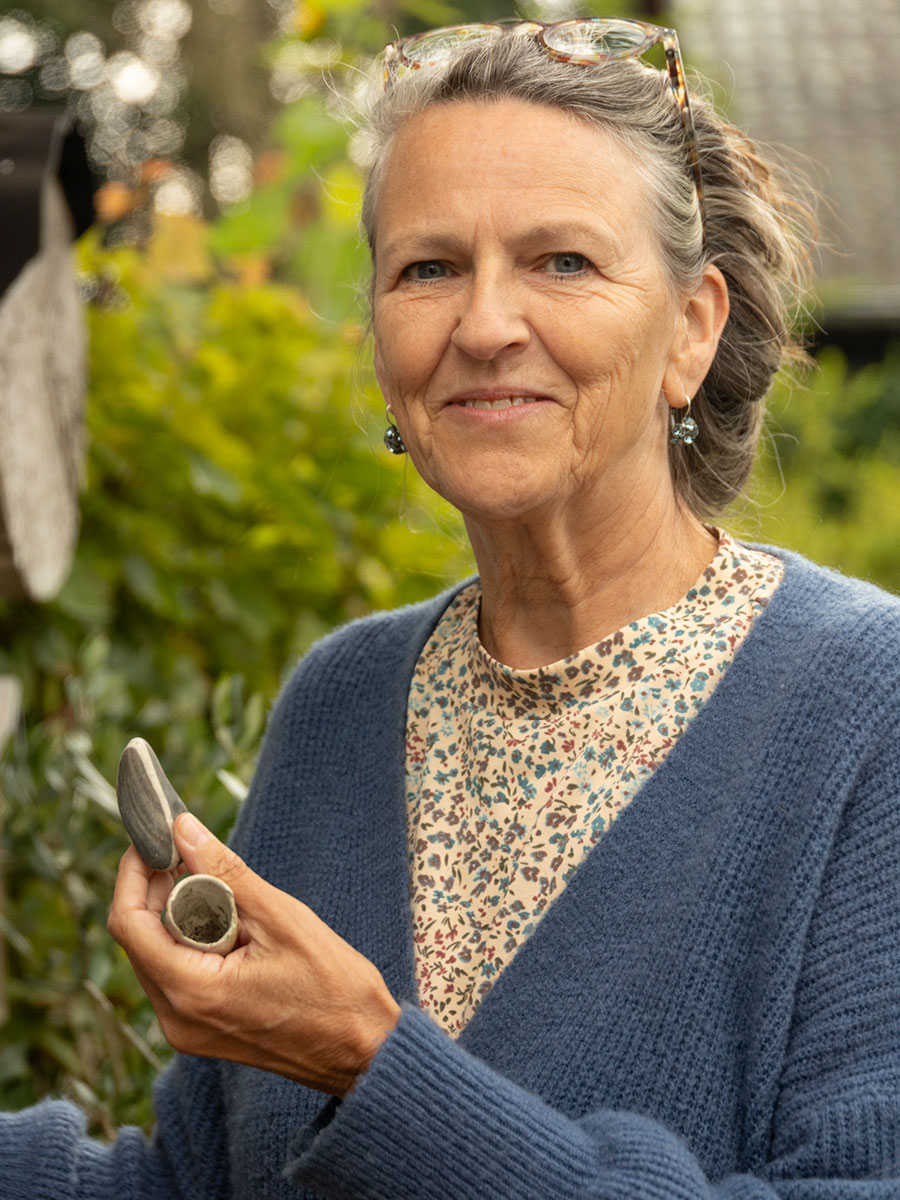‘Untire was my best friend for six months’

Maria (62) stumbled upon Untire by chance. ‘Untire was my best friend for six months. I used the app twice a day and it really helped me. The tips and information that it gave were very useful. It’s nice to have a buddy who says ‘you’re on the right track’ or ‘what you’re going through is very normal’ from time to time.’
Maria attributed her symptoms to the menopause. ‘My waistline was slowly disappearing, and so I went on a diet. I was also experiencing mood swings and feeling gloomy quite often.’ But alarm bells only started ringing when she felt a lump in her abdomen. She was sent to hospital for a check-up, suspecting that it was a cyst. But in the end she was told she had a carcinoma.
Maria underwent an invasive operation and something called ‘hot chemo’ to remove the cancer cells scattered in her abdomen. Maria felt extremely tired after the treatment. ‘The operation and treatment are very tough. Your entire immune system is destroyed.’
Learning to live with a different energy system
She had to learn to live with a different energy system. ‘You think you still have your old body, but you really don’t. There are lots of things you suddenly can’t do any more which you used to be able to do. I have a good amount of energy for six hours at a time and then it stops. I used to be able to keep going the whole day.’
After the operation, she was in hospital for a month and could do ‘absolutely nothing’. When she arrived home, she gradually improved. ‘It took 15 minutes to walk up the stairs, with a break after each step.’
Maria says she felt ‘reasonably normal again’ a year after her first treatment. ‘Mentally, I could overcome this obstacle. I thought I would feel 80% normal again if I had physiotherapy.’
Haystack
Unfortunately, her illness returned. ‘You can compare my treatment to removing a large haystack from a farm. How difficult would it be to find and remove all the pieces of straw? The same applies to me – the mucus containing the cancer cells is spread across your abdomen, and it can slowly grow back.’
Maria underwent gruelling treatment for the second time and was told by her oncologist that her condition was chronic. ‘I had to make permanent lifestyle changes, which I found very difficult. You’re working on your rehabilitation all day… managing what you’re eating, thinking about whether you’re getting enough protein. You have to identify your limits: what can and can’t you do?’
Her partner, friends and medical professionals gave her a lot of help and support. ‘Ultimately, though, you’re on your own.’ Maria had to learn to live with the fact that she suddenly gets ‘bone-tired’. ‘I’m like a phone with a very bad battery. My battery runs out very quickly and it’s not easy to recharge.’
‘You can use Untire when you want’
One of her colleagues, who also had cancer, told her about Untire. ‘I found out about the app at a time when I was fed up of talking about how things were going with my partner and my friends. The great thing about Untire is that you can use it when you want and for as long as you want. You can pick a topic that interests you at a particular time or a topic about which you want to read information and tips.’
Maria found the Vase of Energy section very useful, as it helped her keep track of her energy level. ‘Sometimes I noticed, from what I entered in the Vase of Energy each day, that I was overdoing it before I started to feel worse. It also helped me establish the number of hours I should work so that I could gradually rehabilitate.’
Meditation to help relax
She used Untire intensively for months and still uses it from time to time. I often use the meditation exercises to help me relax in the afternoon. ‘And I sometimes do the short three-minute meditation exercise with my colleagues at work.’
Her illness has become a regular house guest, that entered her house uninvited and now has a permanent place in the shed. It knocks on the front door every now and then. ‘But I can live with it for now.’

